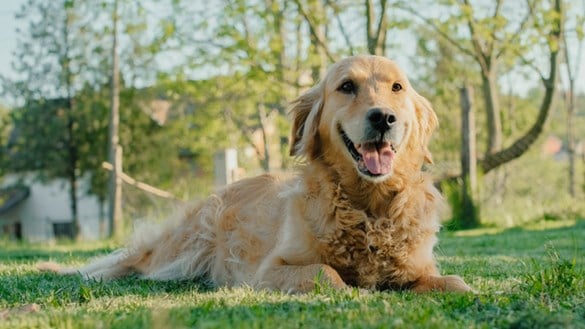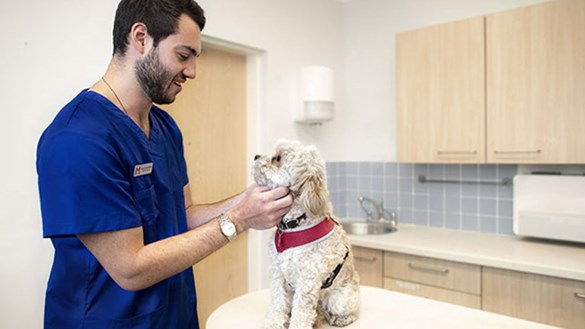Looking After Your Dog's Eyes
Checking your dog’s eyes should be part of their regular grooming routine. Their eyes should be clear, moist, bright and react to light.
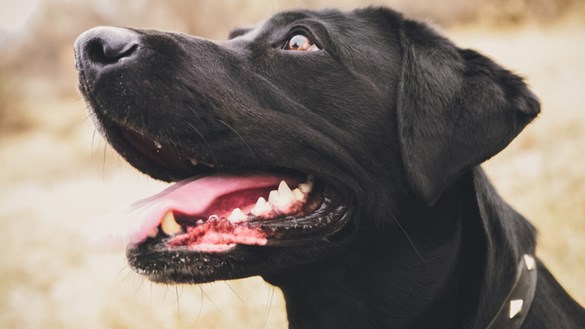
Eyecare for dogs
Dogs’ eyesight differs from humans - they see mainly in red and green hues, have better night sight and a wider field of vision, but like humans, they can suffer from a range of eye problems.
Without proper care and treatment, these can affect your dog’s quality of life and even lead to blindness. However, by remaining vigilant you can treat any issues early, before they cause permanent damage.
What causes eye problems for dogs?
Just like humans, dogs can suffer bacterial or viral infections. The surface of the eye can also be damaged by foreign objects, particularly if they enjoy rolling around and running through the undergrowth while out walking.
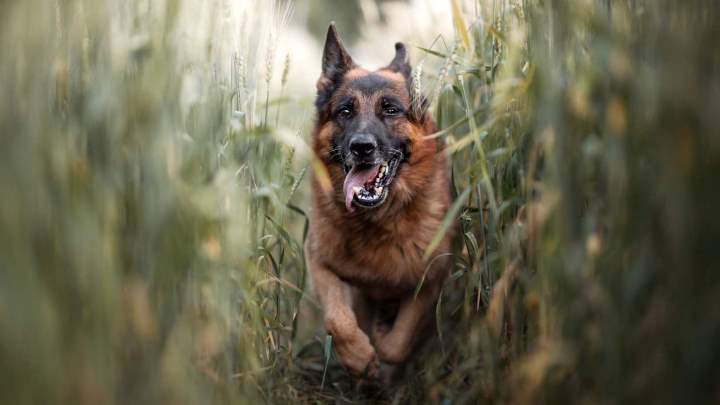
Some breeds of dog are more prone to eye problems than others, and if you have a breed of dog with long hair this can also cause irritation if the hair isn’t kept trimmed and away from their eyes.
Dogs can also suffer a general deterioration of their eyesight as they age.
There are many conditions which can affect your dog’s eyesight:
- Conjunctivitis
- Cataracts
- Glaucoma
- Corneal ulcers
- Progressive Retinal Atrophy
- Insufficient tears
- Diabetes
- Entropion and ectropion
- Inherited conditions
These are some of the most common conditions:
Conjunctivitis
Conjunctivitis is one of the most common eye infections your dog can get. Also, known as pink eye, it can be caused by debris in the eye such as an eyelash, bacterial or viral infection, allergies, or a lack of natural tear production. It leads to inflammation of the eye and discharge. The condition can cause itchiness and pain.
Conjunctivitis can clear up on its own or by bathing the eye with a recommended eyewash but if it doesn’t you may need to see a vet for further treatment.
Recurring conjunctivitis could mean your dog is suffering with ‘dry eye’. This is a painful condition and can lead to permanent blindness. Always see your vet if your dog seems to be struggling with conjunctivitis, early treatment is essential.
Cataracts
Cataracts are another common cause of worsening eyesight in your dog, particularly as they get older. You may notice one or both of their eyes becoming cloudier. It’s usually painless but can lead to blindness.
Glaucoma
Glaucoma can be a very painful condition for your dog and requires immediate treatment. It’s caused by high pressure in the eyeball and without quick intervention can lead to permanent damage. You may see a haze spread across the eye or it may look blue in appearance. The white of the eye may appear red and watery, and your dog may squint or need to sleep more.
Corneal Ulcers
Corneal ulcers are a bit like a deep scratch in the clear part of the eye – the cornea. It’s important to get it treated quickly because scratches can become deeper and affect the rest of the eyeball if left untreated. Some breeds of dog such as those with bulging eyes are more prone to damage to the cornea because they have less protection.
What does a healthy eye look like?
Healthy eyes in dogs should be clean, bright, and clear of any dirt or debris. You shouldn’t see discharge or redness around the eye and the white part should be white, not red or yellow.
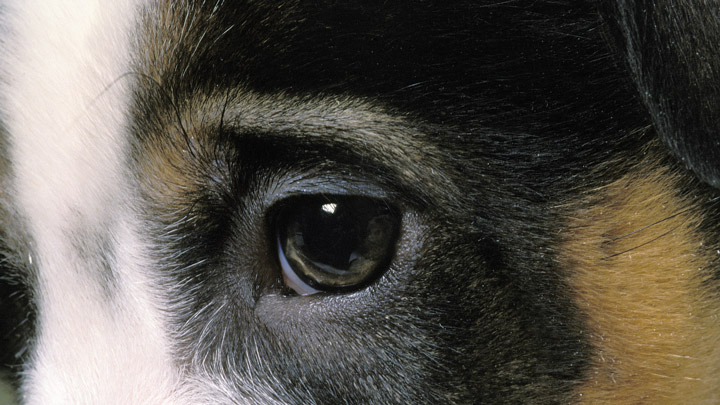
Looking after your dog’s eyes should form part of their regular grooming routine. Their eyes should be clear, moist, bright, and react to light. The pupils should be of equal size.
Make sure you keep all hair out of your dog’s eyes and remove any mucous with a sterile eyewash.
If your dog is squinting or closing their eye, rubbing or pawing at it, or you see inflammation or discharge it could be a sign they’ve got a problem
Other signs to look out for:
- A dull eye surface
- Debris or matter in or near the eye
- Cloudiness
- Tear stains around the eye
- Any kind of discharge
When you should see the vet
If you notice any changes in your dog’s eyes then you should see your vet. Even minor eye issues can be an early sign of a future problem – best to be safe and get it looked at.
If you’re worried about your dog’s eyes – please talk to your vet

The Importance of Insurance
Insurance can offer peace of mind, especially in challenging times. At Medivet, we are committed to providing trustworthy, expert advice that helps you care for your pet, including advice on choosing the right insurance policy.
View Pet Insurance
Pet care & advice
At Medivet, we’re committed to providing trustworthy, expert advice that helps you care for your pet.
Search advice


